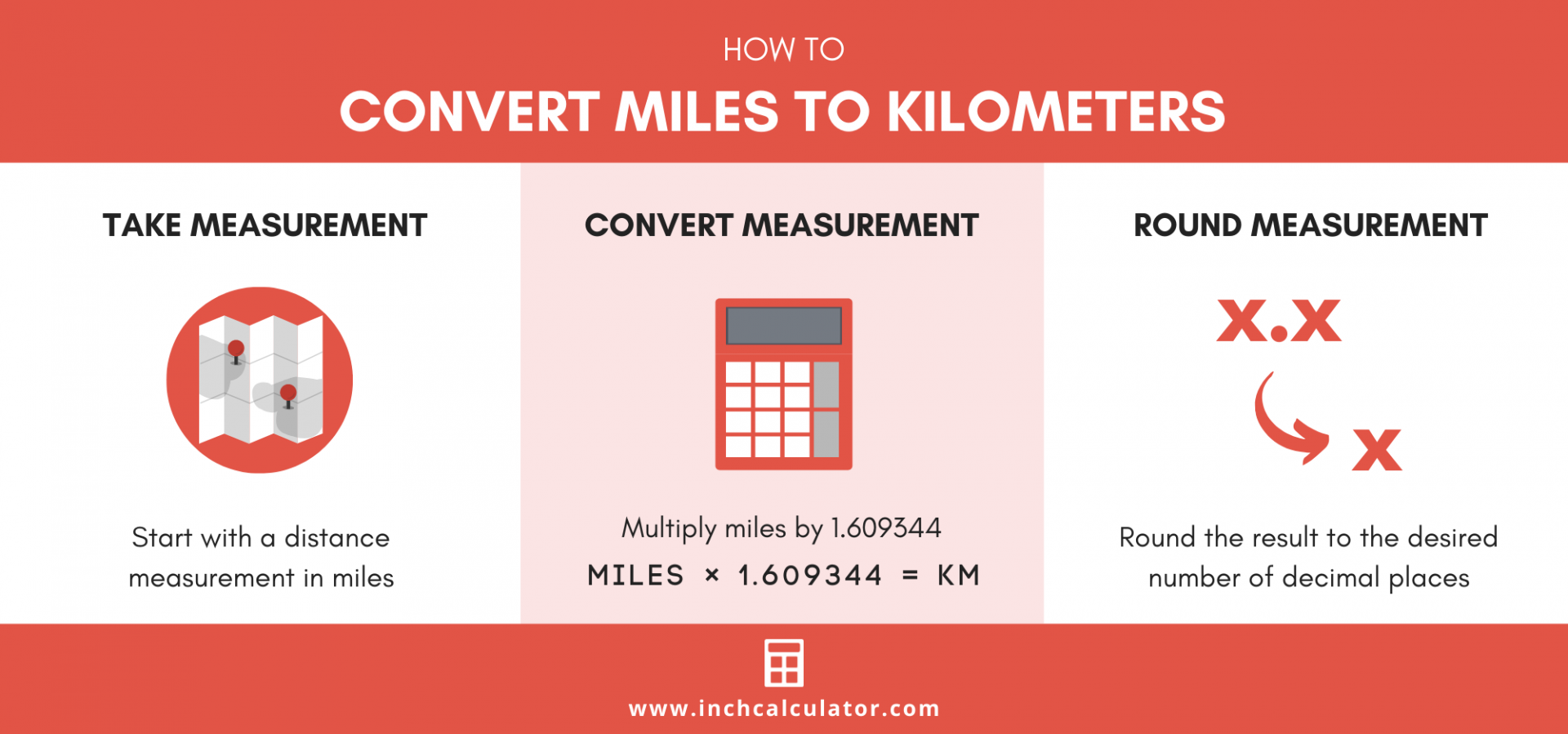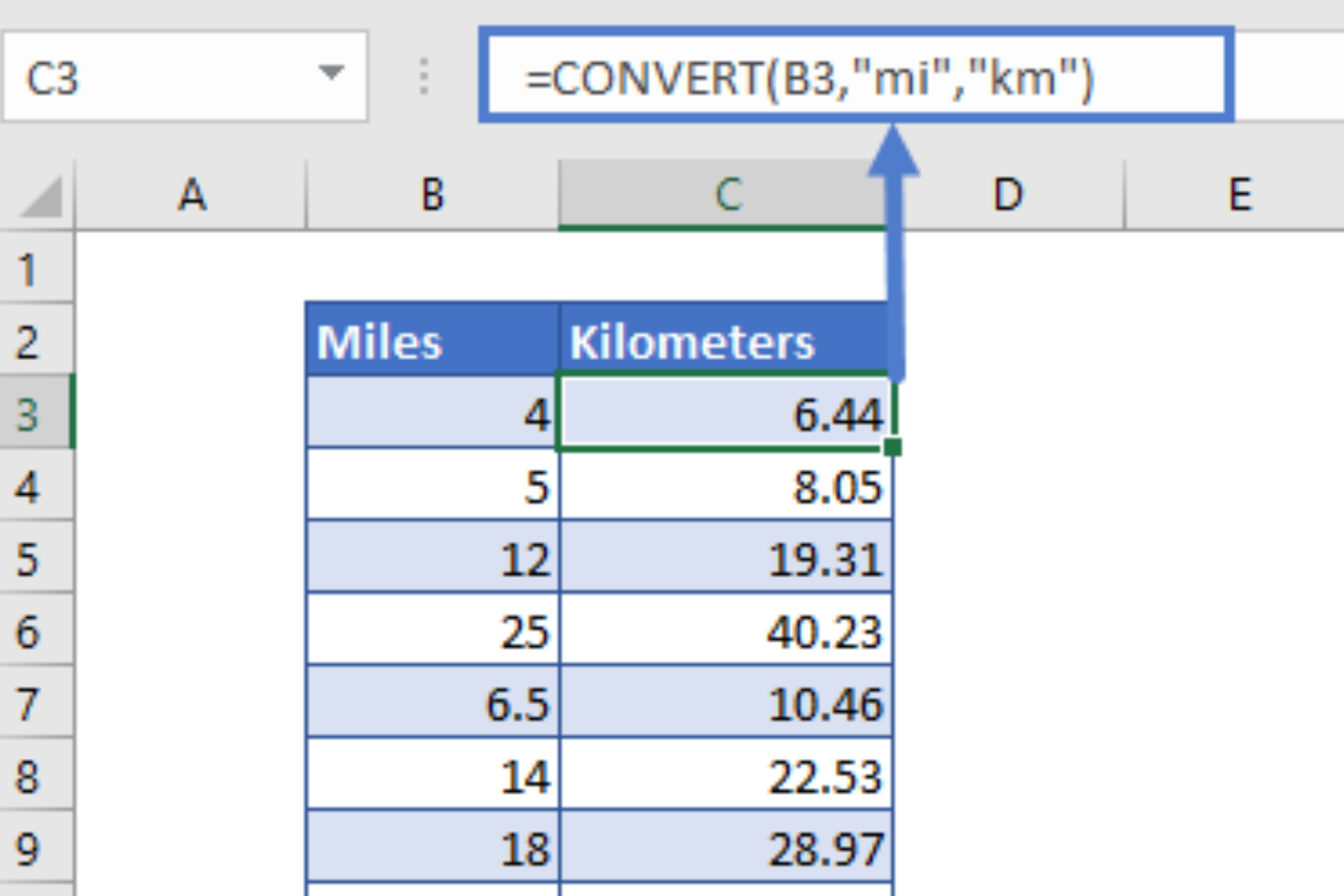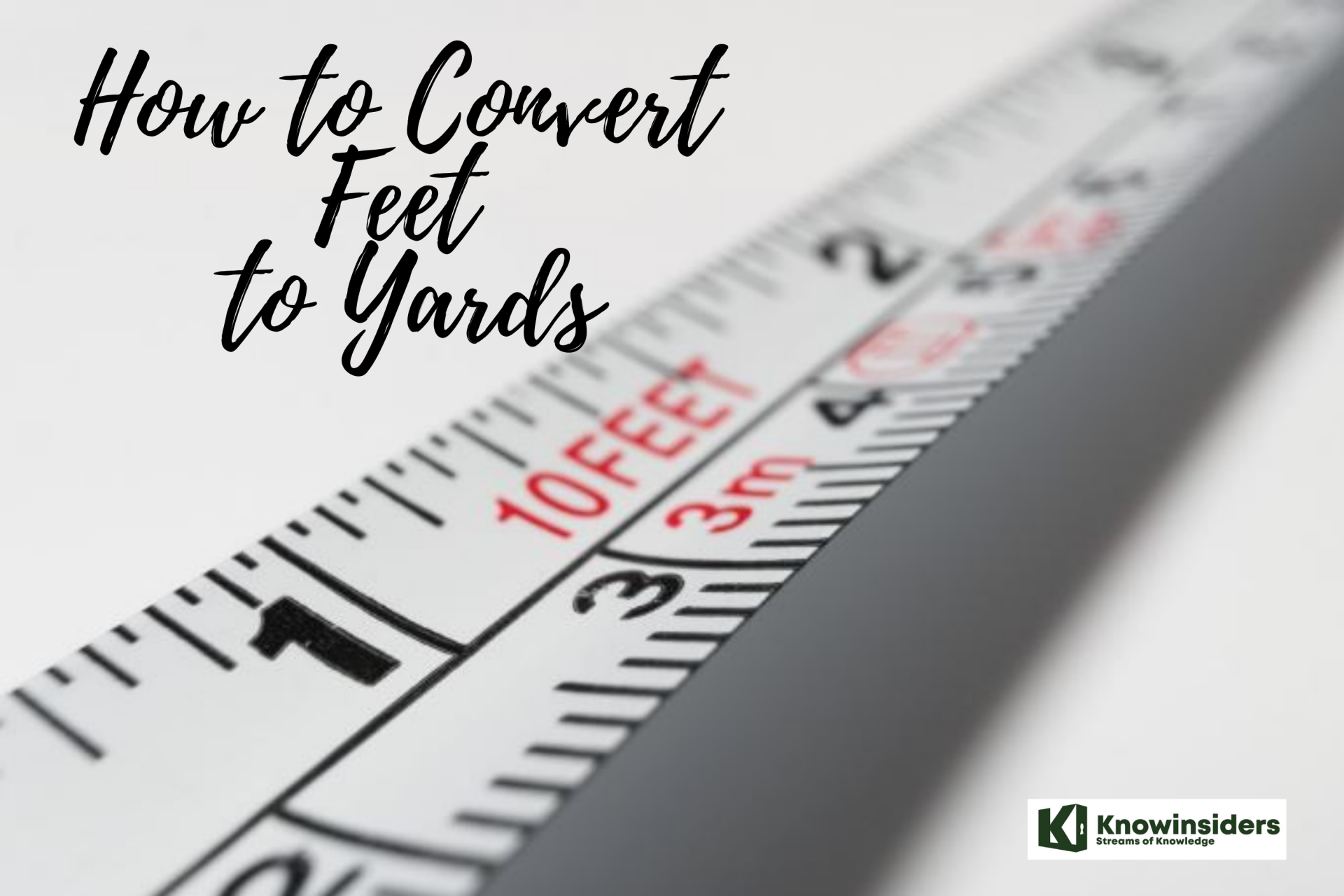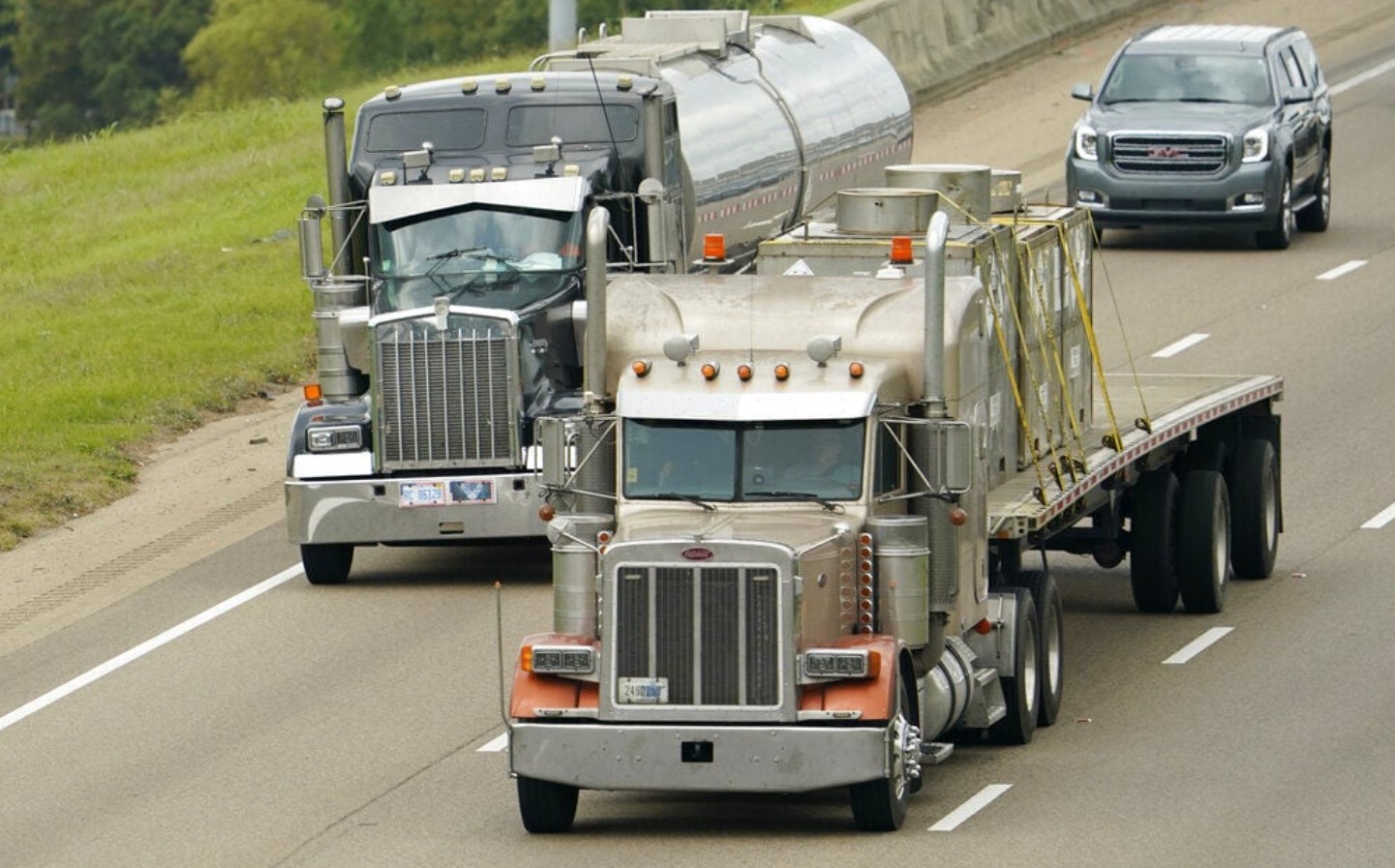How to Convert Miles to Kilometers: Simple Ways to Change
 |
| Illustrated picture. Photo: Mixi's |
Miles and kilometers are both units used to measure distance or length. The world is full of different units of measure, and it's important to know how to convert from one unit to another.
What is a Mile?
The mile is a linear measurement of length equal to exactly 1,609.344 meters. One mile is also equal to 5,280 feet or 1,760 yards.
The mile is a US customary and imperial unit of length. Miles can be abbreviated as mi, and are also sometimes abbreviated as m. For example, 1 mile can be written as 1 mi or 1 m.
What is a Kilometer?
One kilometer is equal to 1,000 meters, which are defined as the distance light travels in a vacuum in a 1/299,792,458 second time interval.[2]
The kilometer, or kilometre, is a multiple of the meter, which is the SI base unit for length. In the metric system, "kilo" is the prefix for 103. Kilometers can be abbreviated as km; for example, 1 kilometer can be written as 1 km.
How Many Kilometers are in a Mile?
There are 1.609344 kilometers in a mile, which is why we use this value in the formula above.
1 mi = 1.609344 km
How to Convert Miles to Kilometers
 |
| Source: On pic |
The fastest way to convert miles to km (kilometers) is to use this simple formula:
kilometers = miles × 1.609344
The distance in kilometers is equal to the distance in miles multiplied by 1.609344. Since one mile is equal to 1.609344 kilometers, that's the conversion ratio used in the formula.
| For example, here's how to convert 5 miles to kilometers using the formula above. 5 mi = (5 × 1.609344) = 8.04672 km |
How to estimate miles to kilometers
What about going the other way, for the European traveller trying to convert those weird miles into nice neat kilometres? Well, the obvious way is to divide by five and then multiply by eight. 90 ÷ 5 = 18 x 8 = 144.
So, yes, of course it works but there's a problem; While dividing by five is easy enough (divide by ten and double it), multiplying by eight is trickier. One way to solve it is to reduce the principal number to something that appears in the eight times table then convert it back. So that 18 could be halved to nine and we all remember, don't we, that nine eights are 72. Double back again and we get to 144.
As an alternative, let's think about about a kilometre equalling (roughly) six tenths of a mile. This is why British and American soldiers stationed in Germany were taught an 'on manoeuvres' converter: divide the miles by six and move the decimal point one point to the right.
Let's try it. Six goes into 90 fifteen times. Express that as 15.0 and move the decimal point one place right and arrive at 150. You can also divide by three and multiply by five: 90 ÷ 3 = 30 x 5 = 150. Pretty close (but I hope they don't use it for calculating artillery ranges).
Again, though, there's a formula that's almost as easy to work out in your head but delivers a precise result. Divide the number of miles by five and subtract that from the original. Then double the resulting number.
90 miles ÷ 5 = 18.
90 - 18 = 72.
72 x 2 = 144 kilometers.
That'll do nicely. Did you see what we did there? Turned the miles number into four fifths and then doubled it to make eight fifths, or the reverse of five eighths. Sometimes fractions are easier than decimals.
Of course, if you're looking for a pain-free method of doing the calculation right here and now then you can use our handy kilometers and miles converter, below.
 How to Convert Kilometers to Miles: Best Ways to Change How to Convert Kilometers to Miles: Best Ways to Change Kilometers and Miles are both used to describe distance in real life. Check out the methods to convert Kilometers to Miles right below! |
How to Convert Miles to Kilometers Without a Calculator
Multiplying by the conversion ratio of 1.609344 might be quick using a calculator, but what if you want to convert miles to kilometers without one?
While it's not nearly as accurate, there's actually a pretty easy method for converting in your head that will get you close.
multiply miles by 1 (50 x 1 = 1) multiply miles by .6 (50 x .6 = 5 x 6 = 30) add them together (50 + 30 = 80 mi) Follow these three steps to convert miles to kilometers:
- Multiply miles by 1
- Multiply miles by .6
- Add these two values together
| For example, here's how to convert 50 miles to kilometers using this method. 50 mi × 1 = 50 50 mi × .6 = 5 × 6 = 30 50 + 30 = 80 km The result of 80 km is pretty close to the actual value of 80.4672 and could be done pretty quickly. Bottom line, if you need precision, use the calculator above, but this method will save you some time! |
Conversion of Values in miles to kilometers in Excel
Just by switching the measurements arguments, we can convert the values given in miles to kilometers:
=CONVERT(B3,"mi","km")
 |
| Photo: Mixi-2 |
Mile to Kilometer Conversion Table
| Miles | Kilometers |
|---|---|
| 1 mi | 1.6093 km |
| 2 mi | 3.2187 km |
| 3 mi | 4.828 km |
| 4 mi | 6.4374 km |
| 5 mi | 8.0467 km |
| 6 mi | 9.6561 km |
| 7 mi | 11.27 km |
| 8 mi | 12.87 km |
| 9 mi | 14.48 km |
| 10 mi | 16.09 km |
| 11 mi | 17.7 km |
| 12 mi | 19.31 km |
| 13 mi | 20.92 km |
| 14 mi | 22.53 km |
| 15 mi | 24.14 km |
| 16 mi | 25.75 km |
| 17 mi | 27.36 km |
| 18 mi | 28.97 km |
| 19 mi | 30.58 km |
| 20 mi | 32.19 km |
| 21 mi | 33.8 km |
| 22 mi | 35.41 km |
| 23 mi | 37.01 km |
| 24 mi | 38.62 km |
| 25 mi | 40.23 km |
| 26 mi | 41.84 km |
| 27 mi | 43.45 km |
| 28 mi | 45.06 km |
| 29 mi | 46.67 km |
| 30 mi | 48.28 km |
| 31 mi | 49.89 km |
| 32 mi | 51.5 km |
| 33 mi | 53.11 km |
| 34 mi | 54.72 km |
| 35 mi | 56.33 km |
| 36 mi | 57.94 km |
| 37 mi | 59.55 km |
| 38 mi | 61.16 km |
| 39 mi | 62.76 km |
| 40 mi | 64.37 km |
| Interesting facts to know – how many kilometers in a mile A Sheppey distance is defined as the closest distance to keep a sheep picturesque. One Sheppey is about 7/8 of a mile. There are 63360 inches in a mile. The escape velocity (The minimum speed required to overcome the gravitational pull completely) of Earth is equal to 25,000 miles per hour. |
In this full detailed instruction video, you will find how to easily convert miles to kilometers:
For more interesting news of KnowInsiders, check out right below!
 How to Convert Minutes to Hours: Easy Ways to Change How to Convert Minutes to Hours: Easy Ways to Change How to convert minutes to hours? Follow our simple steps! |
 How to Convert Degrees to Radians and Radians to Degrees: Best Ways to Change How to Convert Degrees to Radians and Radians to Degrees: Best Ways to Change Welcome to math lessons of KnowInsiders. The first lesson in the series will be how to convert degrees to radians with simple guides. |
 How to Convert Word to PowerPoint How to Convert Word to PowerPoint PowerPoint is a great way to merge text and images for presentations. Are you struggling with the way to convert Word to Powerpoint? Check out ... |


























